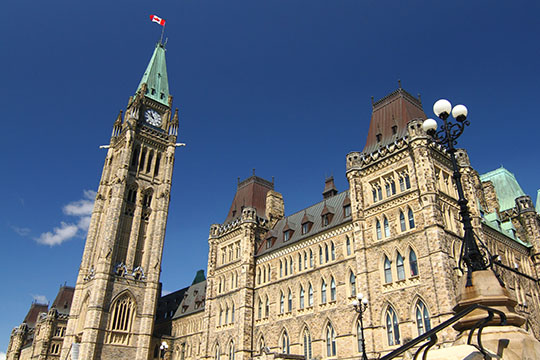
Please note that important updates have been made to this article since it was originally published. It was last updated on May 19, 2020.
Canadian seniors had a much-anticipated announcement Tuesday from the federal government’s seniors minister, Deb Schulte, and Treasury Board President Jean-Yves Duclos.
“Older adults in Canada have been hit financially by the COVID-19 pandemic,” says National Association of Federal Retirees president, Jean-Guy Soulière. “They’ve faced increased costs at the pharmacy, or losses of part-time work needed to make ends meet, or have already seen the very real start of financial impacts on RRSPs, and let’s face it – seniors that have to rely heavily on Old Age Security and the Guaranteed Income Supplement live on a financial tightrope at the best of times, not just during a global pandemic. The past months have shown exactly why Canada must focus on policies to ensure all Canadians age with dignity, and in security.”
The announcement for seniors focused on four points:
- The federal government will provide a one-time, tax-free payment of $300 for seniors eligible for the Old Age Security (OAS) pension, with a further $200 for seniors eligible for the Guaranteed Income Supplement (GIS). This means that seniors who receive both the OAS and the GIS will receive a total of $500.
- A one-time tax-free payment of $300 will be made for those eligible for Old Age Security (OAS), and an additional $200 will be available for those eligible for the Guaranteed Income Supplement (GIS). The $2.5 billion investment is expected to reach 6.5 million seniors on OAS, including nearly 2.1 million who are on the GIS.
- An additional investment of $20 million in New Horizons for Seniors Program for the duration of the pandemic. The New Horizons for Seniors Program provides grants to community-based programs that help older adults cope with social isolation, physical wellness, virtual connectivity, food or medication deliveries.
- OAS/GIS payments will be extended, even if a senior is unable to file their income taxes by the June 1 deadline – though seniors will still need to file income taxes sooner rather than later in order to avoid interruptions to their OAS/GIS later this year.
Seniors do not have to apply for the additional support; it will be automatically paid to eligible seniors who are age 65 and up as of May 31, 2020.
Officials with Minister Schulte’s office confirmed with Federal Retirees that recipients of the GIS Allowance and the Allowance for the Survivor will also receive the $500 payment. Spouses and survivors who are age 60-64 and whose partner is or was a GIS recipient are eligible for the GIS Allowance. These individuals are low-income and may be among seniors who are hardest hit by COVID-19 financial impacts.
In addition, the one-time tax-free payments will be made to all OAS recipients, including people who are subject to the OAS Recovery Tax due to their higher income level.
“With any announcement on government spending, the devil is in the details, and Federal Retirees will work to get those details over the coming days,” says Federal Retirees CEO Simon Coakeley. “On the surface, it looks like the measures announced Tuesday will start to put dollars in the pockets of the seniors that need it most right now and may improve their access to supports and services in their communities. But as we continue to navigate the pandemic and our recovery from it, we need a long-term plan to address the financial and health security of older adults. That needs to include financial measures to reach those who need it most, and bold action and federal leadership on long-term care and health care.”
Canadians with pensions were also pleased to see a boost for retirement security in federal government policy, as part of the government’s bridge loan program for large employers, announced May 11 (the Large Employer Emergency Financing Facility or LEEFF). The program requires employers to commit to protecting workers’ pensions and respect collective bargaining – though specifics on what that means, and how it will be enforced, are not yet available.
“This pandemic isn’t over, and neither is our advocacy on behalf of our members and older adults who are very concerned about their longer-term financial and health security,” says Soulière.
Schulte and Duclos were unclear about when the OAS/GIS payments are actually expected to start. The announcement follows one-time special payments made available to Canadians through the GST credit; investments including $9 million to United Way; $100 million to improve food access for Canadians including seniors; the $350 million Emergency Community Support Fund which went to several organizations, including the United Way, to adapt services for vulnerable groups; and a reduction of 25 per cent for 2020 to the mandatory withdrawal rate of Registered Retirement Income Funds (RRIFs). Seniors with employment income who have lost that income due to COVID-19 are also eligible for the Canada Emergency Response Benefit (CERB).
Read the Government of Canada’s media release.
Last updated: May 19, 2020

